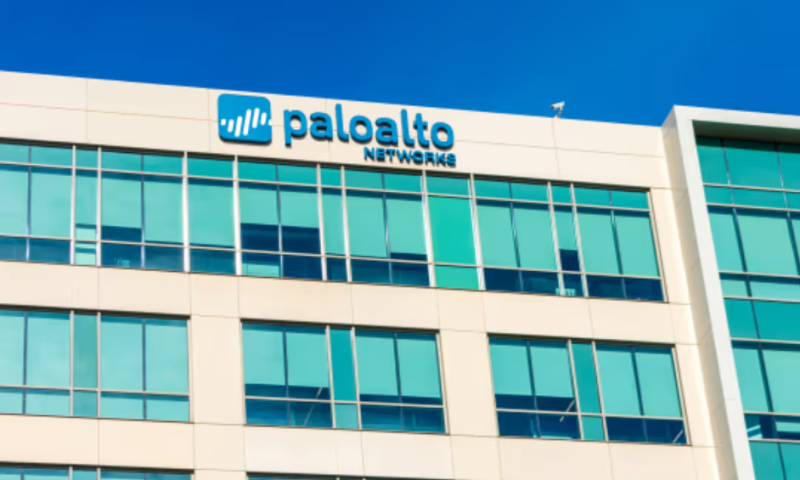CEO says ‘escalating threat landscape’ is ‘fueling strong demand in the cybersecurity market’
Shares of Palo Alto Networks Inc. slid after hours Wednesday after the cybersecurity company trimmed its full-year outlook for billings, as its customers seek more flexibility on cybersecurity spending.
Executives tempered that forecast despite what they characterized as an an “unprecedented level” of cyberattacks driving demand for greater security. But a more cautious tack on the economy and higher interest rates have reshaped the way businesses craft their tech budgets.
Palo Alto Networks PANW, -1.91% said it expected total billings of between $10.7 billion and $10.8 billion, compared with a forecast given in August for $10.9 billion to $11 billion. The company considers billings a key metric that factors in subscription and support revenue.
Management held to its full-year forecast for $8.15 billion to $8.20 billion in sales. But it raised its adjusted profit forecast to $5.40 to $5.53 a share.
Shares fell nearly 6% after hours on Wednesday.
During Palo Alto Networks’ earnings conference call, executives said the change in the billings forecast reflected more frequent customer demands for deferred payment terms or discounts. But they said it did not reflect a change in demand.
“Some customers are looking for additional discounts for upfront payments as they grapple with the cost of money,” Chief Financial Officer Dipak Golechha said on the call.
Palo Alto Networks also said it expected fiscal second-quarter billings in the range of $2.335 billion to $2.385 billion, below FactSet forecasts for $2.41 billion. It forecast second-quarter sales of $1.955 billion to $1.985 billion, with the midpoint in line with forecasts, and adjusted earnings per share of $1.29 to $1.31, above estimates for $1.25.
The company reported the results in the wake of massive recent cyberattacks on big companies. The results also follow regulatory efforts to hasten the disclosure of such attacks and increase transparency around them, and attackers’ increased use of AI to steal sensitive data within a matter of hours. Those trends have driven greater demand for cybersecurity.
“An unprecedented level of attacks is fueling strong demand in the cybersecurity market,” Nikesh Arora, Palo Alto Networks’ chief executive, said in a statement Wednesday.
During the call, Arora described an “escalating threat landscape,” with ransomware attacks and ransoms paid both on the rise, and cited a recent incident where hackers ran off with 2.4 terabytes of data in 14 hours.
“If you look at what’s going on from an overall cybersecurity perspective, we have never seen as much adversarial and consistent activity at scale as we have seen in the first quarter,” he said. “Unfortunately, we don’t expect this to abate anytime soon.”
In its fiscal first quarter, Palo Alto Networks reported net income of $194.2 million, or 56 cents a share, compared with net income of $20 million, or 6 cents a share, in the same period a year earlier. Adjusted for one-time items, the company earned $1.38 a share.
Revenue rose 20% year over year to $1.9 billion.
Analysts polled by FactSet expected the company to report adjusted earnings of $1.16 a share on sales of $1.84 billion.
Companies like Clorox Co. CLX, +1.08% and MGM Resorts International MGM, +0.92% have recently suffered breaches that disrupted operations. The Securities and Exchange Commission has voted to adopt new rules requiring publicly traded companies to disclose major cyberattacks within four days of determining whether such an attack will have a material impact on operations.
Those rules take hold next month, amid concerns that companies aren’t being as forthcoming as they could be in reporting data breaches. But some industry groups have said the rules harm investors by “prematurely publicizing a company’s vulnerabilities,” and argued that companies need longer to determine the scope of an attack.
The SEC last month charged software company SolarWinds Corp. SWI, -1.63% and its chief information-security officer with fraud and failure to sufficiently disclose and address cybersecurity gaps following a major cyberattack in 2020. SolarWinds called the charges “unfounded” and said the allegations “should alarm all public companies and committed cybersecurity professionals across the country.”
Palo Alto Networks’ stock has risen 85.1% this year. By comparison, the S&P 500 index SPX is up 17.9% over that period.

